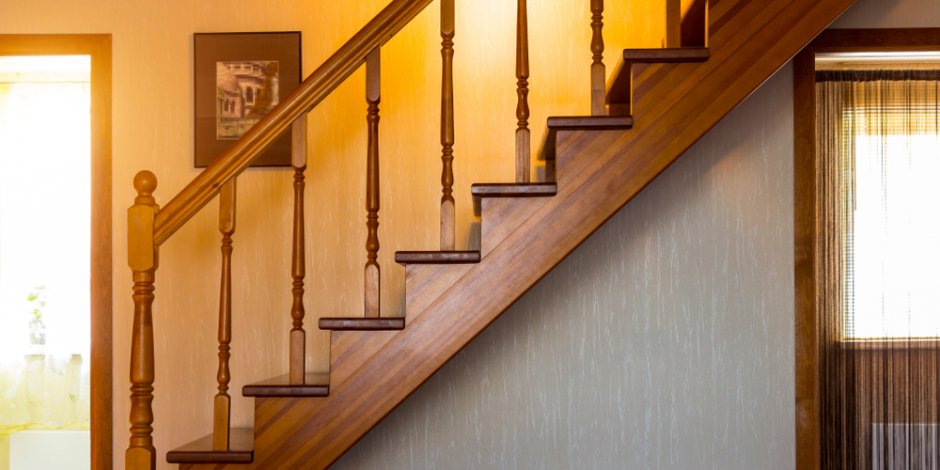
Summer in the Virginia and greater DC area is not only a time for cookouts and vacations, but it’s also a time when we’re likely to experience those sticky, uncomfortable afternoons and evenings — when it’s hot upstairs and cool downstairs.
Just because you’ve already spent days and nights sacrificing your comfort and asking yourself, “Why is my bedroom so hot?” doesn’t mean you have to keep doing it. And the same applies to the colder seasons of the year as well, when different rooms or floors of your home aren’t the same temperature.
What you may not realize is that the upstairs rooms in your home could be hotter or cooler than they need to be not because of any problems with your air conditioning or heating system, but because of underperforming insulation and a lack of air sealing.
WHY YOUR UPSTAIRS IS A DIFFERENT TEMPERATURE THAN YOUR DOWNSTAIRS
When it gets too hot or cold indoors, the first thing many homeowners think of is their heating and cooling system. When you break it down, the science behind a hot upstairs in the summer or cold rooms in the winter may actually surprise you.
- You’ve likely heard the phrase “heat rises”, but that’s not the only law of physics affecting how hot your second floor rooms get in the summer. Outside, the sun is beating down on the exterior of your home: the roof, the windows, and the walls.
- The insulation in those areas of your home is intended to act as a barrier, keeping the heat out and inside air cool. But the bigger the difference in temperature between outside and inside on a summer day, the more that denser cool inside air is looking to escape through the bottom of your home, and the outside hot air is doing everything it can to get in through the top.
- In the winter, it’s the opposite: Heat from your furnace, boiler, or heat pump is looking to escape outside. But in the winter, indoor temperatures are more likely to exit your home at the top, drawing in cold outdoor winter air through your basement or crawl space.
- In most people’s homes, the attic is one of the most problematic areas for heating and cooling. This is where heat is often either lost or gained, depending on the season. It’s common for attics in the metro DC area to be under insulated and full of holes and gaps called air leaks that make it easy for heat and air to pass in and out of your house.
- So where does your AC or heating system fit into this equation? Even if your HVAC system is cranking, an underinsulated house will waste energy and let that conditioned air escape. This is how you wind up with high electricity and energy bills from running your air conditioner or heating system all the time while you still aren’t able to properly condition the second floor of your house. If your home doesn’t have enough insulation, any changes you make to your heating and cooling systems will only be an expensive band-aid fix!
HOW PROPER INSULATION AND AIR SEALING MAKE YOUR UPSTAIRS MORE COMFORTABLE
Insulation helps control the temperature and comfort of all the rooms in your home. You have several options when it comes to insulation, including cellulose, often a top choice for attic insulation, and spray foam, one of the highest performing insulation products available. Both approaches will keep comfortable air already inside your home and prevent outside air and temperatures from getting in.
Air sealing, when done in tandem with insulation, will target holes and air leaks that many types of insulation can’t address. You may be surprised at just how much heat will enter in or exit through even the smallest holes, cracks, and gaps in your home’s exterior. Insulation is usually poorest in those areas, like the spaces around light fixtures, ceiling fans, outlets and switches, chimneys, ventilation and window framing.
On their own, both insulation and air sealing offer important comfort protection and help support your home’s energy efficiency. But studies show that insulation is 50% less effective when installed without proper air sealing. Together, both work as an effective one-two punch, keeping your home comfy even when the Northern VA and DC area summer heat or winter chill is at its worst.
SCHEDULE AN ENERGY AUDIT WITH OUR TEAM
Understanding the underlying problems leading to an uncomfortable upper level in your home is only half the battle. A Home Energy Medics Energy Audit is a great first step to analyzing your home’s unique situation and what kind of work will have the most immediate and beneficial effect on home performance and comfort.
Our team of building science experts will conduct a detailed array of diagnostic tests, like blower door assessments, infrared camera analysis, and interior and exterior structural inspections, to pinpoint exactly where your home’s weak points are and recommend the best steps to address the problems. With the results of your audit, you’ll know where your home needs extra insulation and air sealing, and the severity of the problem. Plus, we’ll walk you through available incentives you qualify for that will lower the cost of upgrades, including up to $1,200 in federal tax credits on energy audit, insulation, and air sealing services and local utility rebates available through the EmPOWER Maryland program.
Find the culprits behind your home’s hot or cold weather issues today. Call (703) 691-5376 or contact us to set up an energy audit today.
MAKE YOUR HOME MORE COMFORTABLE YEAR-ROUND.
Let Home Energy Medics help.
703-447-5379
